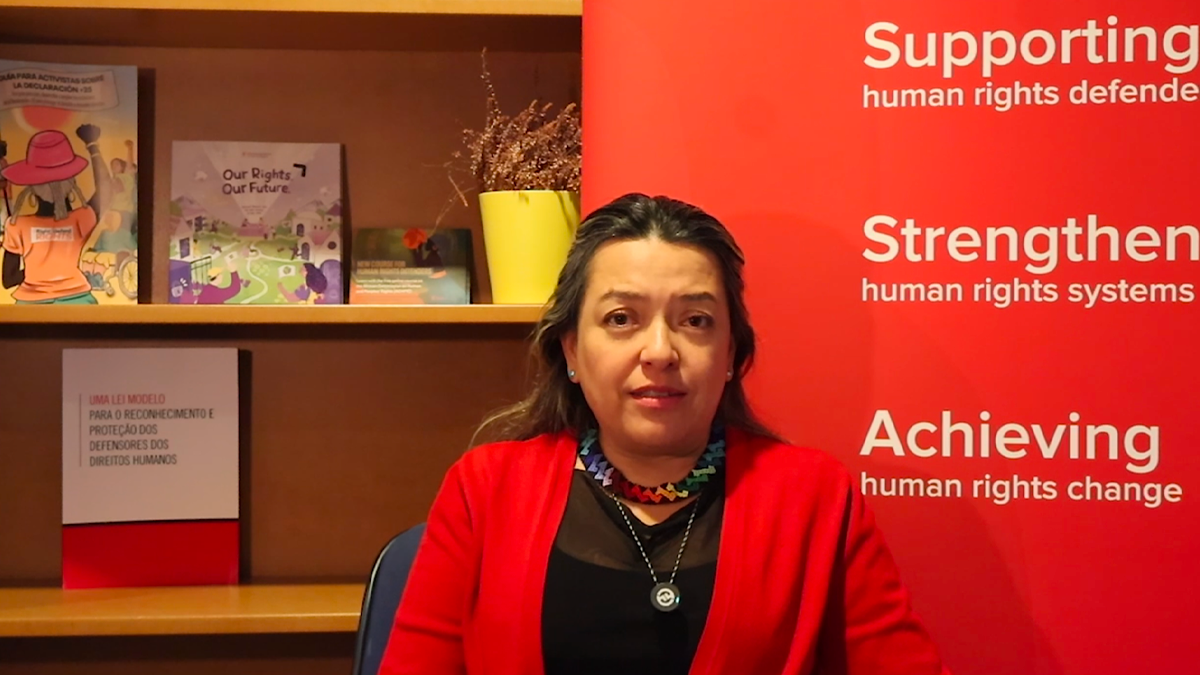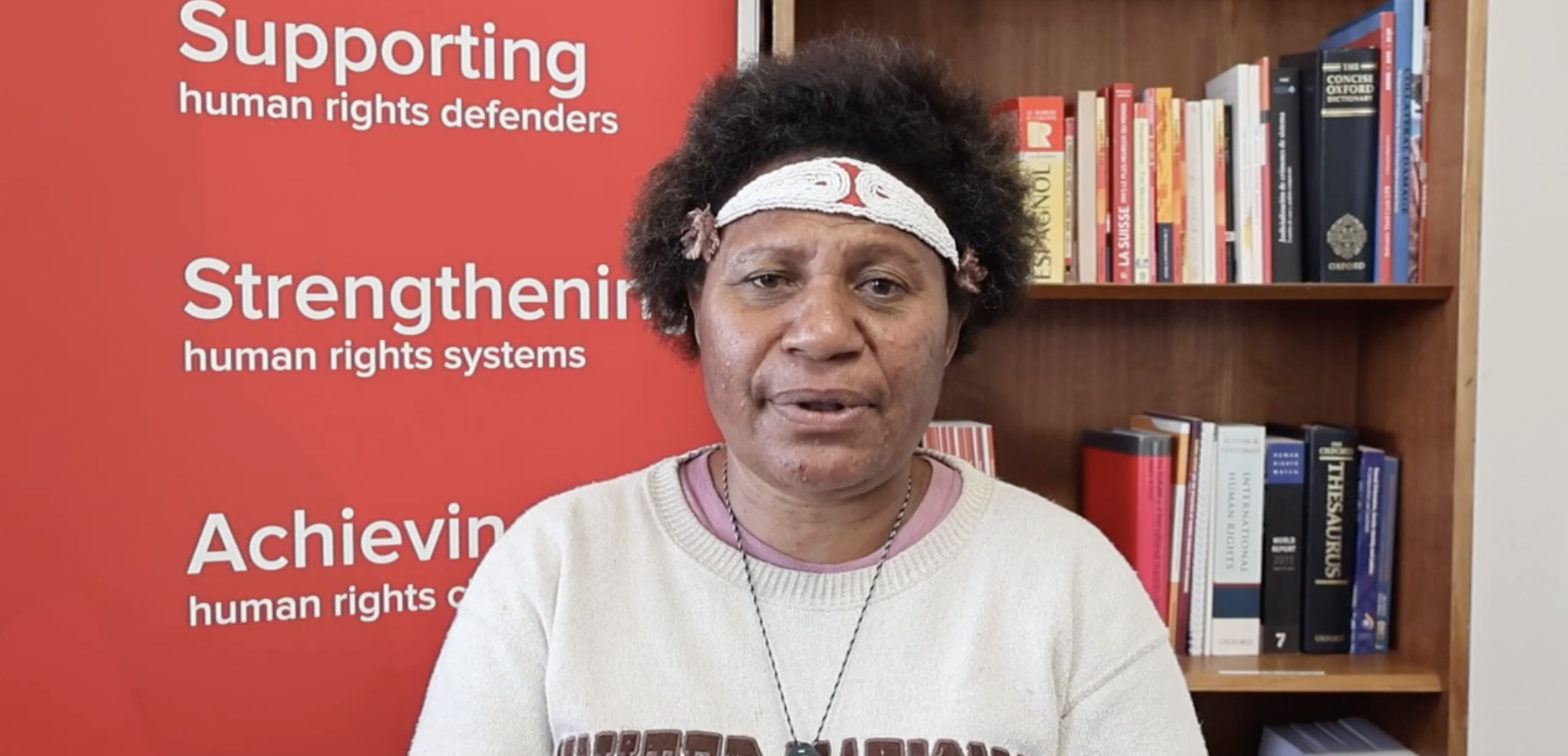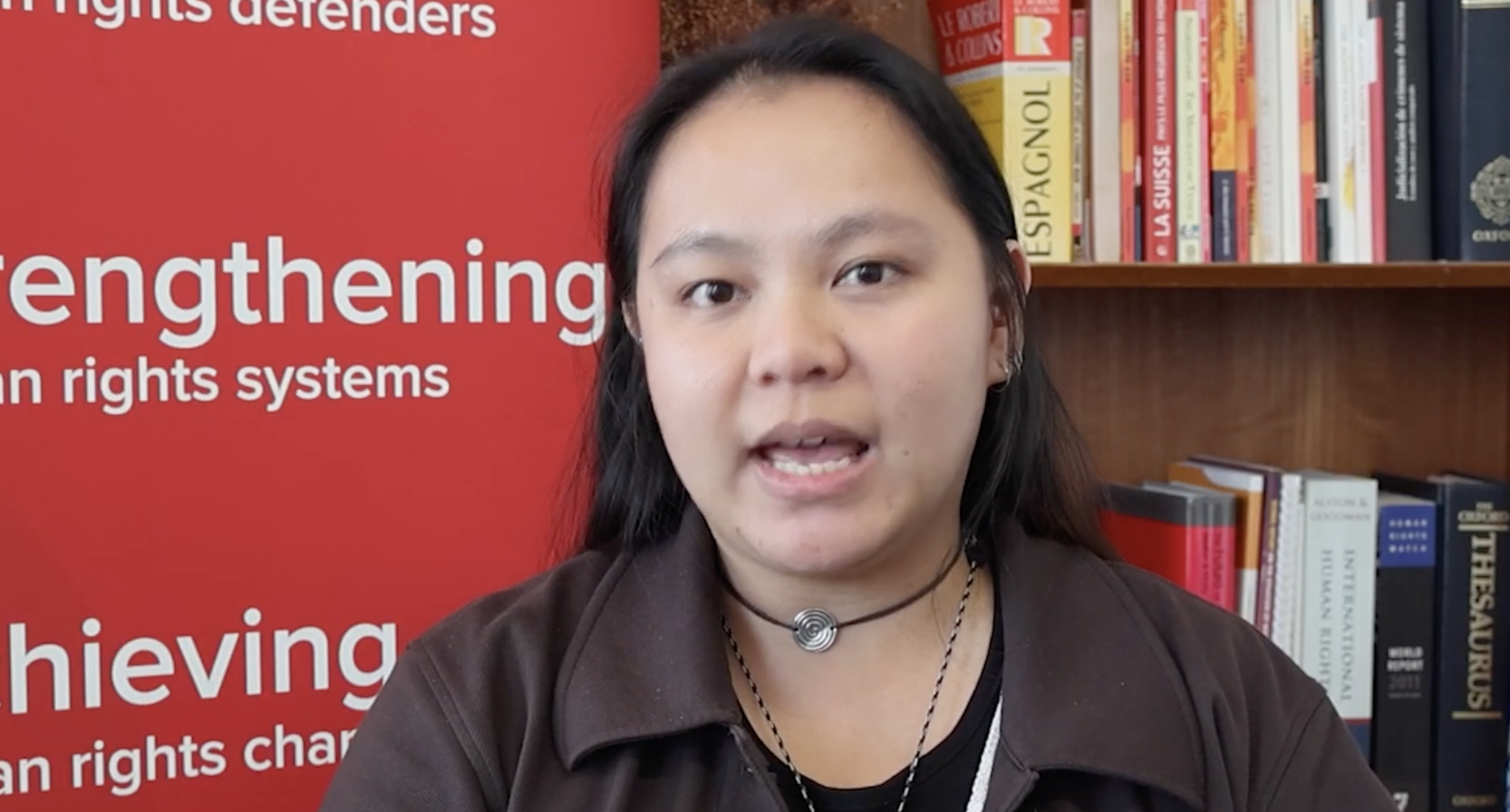
Human rights defender's story: Nathalia Bonilla from Ecuador
'A revolution where you can’t dance is not my revolution,' Ecuadorian environmentalist Nathalia Bonilla told ISHR, arguing for an ‘environmentalism for the people'.
Daniella Solano Morales, a committed advocate from Costa Rica, speaks about her efforts to promote respect for sexual diversity and protect LGBTI and HIV youth human rights through strategic engagement with UN mechanisms and educational projects.
Daniella Solano Morales, a dedicated human rights defender from Costa Rica, is deeply engaged in advocating for the rights of the LGBTI community and HIV-positive youth. As a consultant and promoter with MULABI Latin America Space for sexualities and human rights, her efforts focus on elevating the respect for sexual diversity and implementing social projects that foster inclusivity.
Daniella’s journey as a visible bisexual woman has shaped her advocacy, driving her to create safer and more accepting environments for LGBTI individuals. Her work includes attending international forums such as meetings in Geneva, where she leverages financial support from the United Nations and other organisations to voice the concerns of her community on a global stage.
Through these efforts, Daniella emphasises the importance of civil society’s participation in political spaces to influence governmental policies and promote educational training. Her goal is to ensure that respect for LGBTI people is not just an ideal but a reality, underpinned by robust legal frameworks and societal support. Daniella’s work is a call to action for all who believe in human rights to engage fearlessly with mechanisms that can drive meaningful change.

'A revolution where you can’t dance is not my revolution,' Ecuadorian environmentalist Nathalia Bonilla told ISHR, arguing for an ‘environmentalism for the people'.

'When we feel the impact of the loss and damages of the environment that we belong to, that's the only source of our strength for doing our subsistence farming and produce food for the family,' says Cressida Kuala.

'I would like to see mining projects, small scale mining for example and hydro power projects or water works that are led by the community and are not proposed by big companies and foreign entities that enter our ancestral lands,' says Casselle Ton in an interview with ISHR.